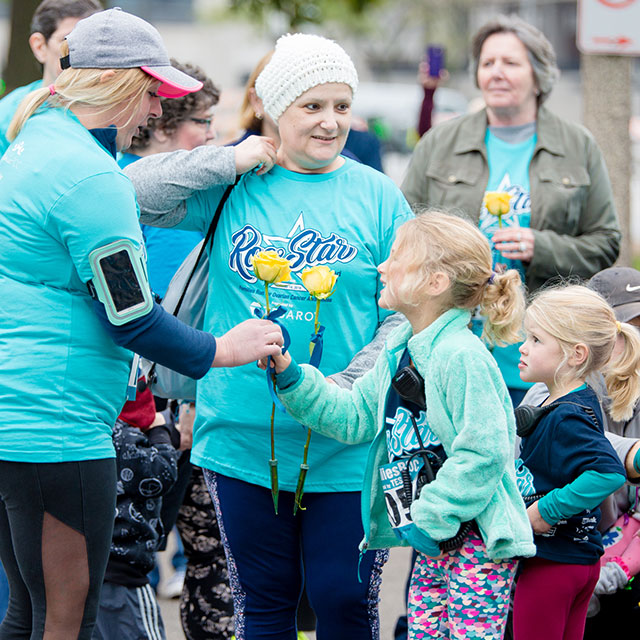Raising St. Louis’ Ovarian Cancer Awareness
Each September, towns across America turn teal. Teal, the color of ovarian cancer awareness; a symbol of support, advocacy and hope…”teal there is a cure,” as the slogan goes. Bringing ovarian cancer into focus is the charge of St. Louis Ovarian Cancer Awareness (SLOCA) every day of the year. “We want to be everywhere we can telling people about this disease,” says Susan Robben, Executive Director of SLOCA. (SLOCA holds an endowment fund through YouthBridge, which helps to generate income for operations, programs and long-term initiatives.)
Despite more than 22,000 women diagnosed with ovarian cancer each year – and nearly 15,000 losing their battle with it – little is known about ovarian cancer by the public, and there is no screening test available (annual Pap tests only screen for cervical cancer). Three out of four cases are diagnosed in the cancer’s late stages; at which point, there is less than a 50% five-year survival rate and a 70-90% recurrence rate.
“These are not acceptable statistics,” says Robben, adding that a large portion of donations to the organization are in memory of a loved one lost to the disease. “We’re working to change this through education and funding critical research.” SLOCA volunteers bring information on ovarian cancer to community events – including the St. Louis Working Women’s Survival Show and the Urban Expo – health fairs, women’s groups, medical students and residents, and an annual Awareness Night at Busch Stadium in September.
While experts are yet to pinpoint exact causes, there are known risk factors – including a family history of breast, ovarian or colorectal cancer – and symptoms that are often overlooked or misdiagnosed. Robben, an ovarian cancer survivor, says she had all of the classic symptoms, but at 23, was told it was indigestion. Experts now agree that most women present with one or more of these four primary symptoms as a change on a daily or near-daily basis for two or three weeks: bloating, pelvic or abdominal pain, urinary urgency or frequency, and difficultly eating or feeling full quickly.
Supporting survivors is another key aspect of the mission, says Robben. As a survivor, she knows the feeling of isolation when you’re fighting a very personal disease. SLOCA partners with each of the ovarian cancer treatment centers in St. Louis to provide “Sister Boxes,” care packages for newly diagnosed patients, and many survivors now work for SLOCA, telling their stories to raise awareness and provide emotional support to patients and families. In 2020, Robben says the organization hopes to start a mentor program, which will pair patients and survivors.
“It’s important for patients and survivors to know they are not alone. There is a sisterhood – one you don’t want to belong to, but from which you can draw strength,” she says.
SLOCA will host its 13th annual Families Run for Ovarian Cancer ROC Star 5k and 1-Mile Run/Walk on Sunday, Oct. 13, 2019 in downtown St. Louis. Registration information can be found here.
